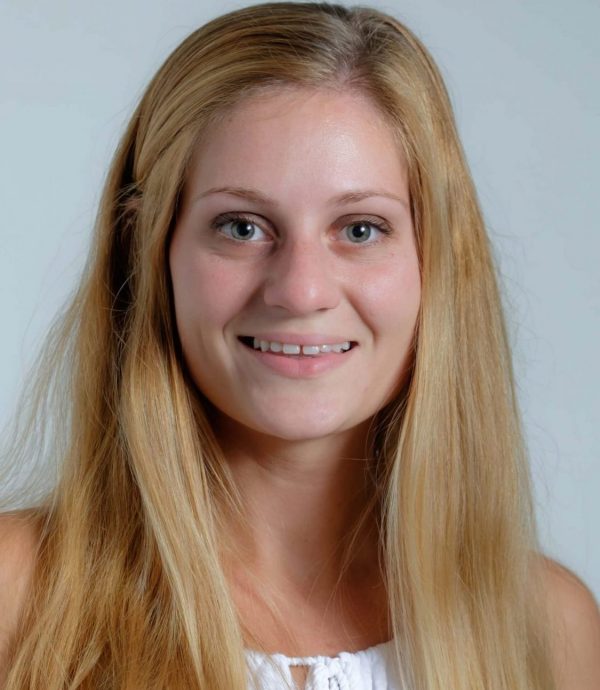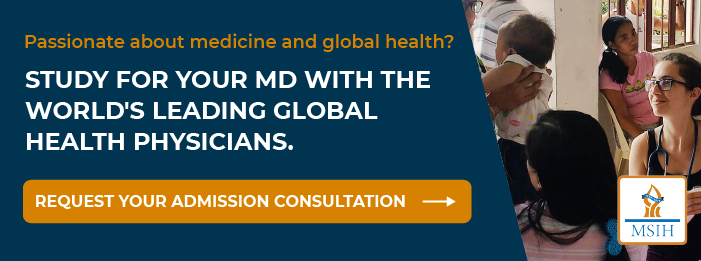Seven years ago, Jensen Reckhow was an engineering student at Yale University, preparing for what would be her first of several trips to a rural community in southeastern Uganda. She and her classmates would be visiting two locally-run, community-based organizations with whom they had corresponded regularly during the months leading up to the trip. She couldn’t have imagined that involvement in this project would eventually lead her to medical school in Israel.
Request your admissions consultation now
“I came into the Uganda project really skeptical of the alternative spring break format,” Jensen explains. “I have always been interested in public service and community engagement, and I try to make sure I actually have something to contribute before getting involved in something. So I wasn’t really sure about transitioning to global health, where I’d be working with a community I didn’t know anything about.”
Luckily, she found a trip led by students with similar concerns. The trip leaders had both spent several months in Uganda, working closely with the organizations the group would visit. The months leading up to the trip were filled with transatlantic Skype meetings and brainstorming sessions. The group wanted to be sure that all of the work that could be completed remotely was, so that the time in country could be spent as efficiently and productively as possible. Jensen and another engineering student were tasked with finding ways to improve water security in the area.
Global Health Project
Jensen recalls being proud and energized by this effort: “it seemed like an ideal global health project. I was combining the technical engineering skills I learned at school with research into real interventions, seeing what translated and what didn’t. We came up with a few options for low-cost water filtration techniques, and were really excited to see what would be most feasible on the ground when we got to Uganda.”
Yet it was clear upon arrival that the solutions Jensen’s team had developed were completely inappropriate for this community.
“We had Skyped almost weekly to discuss the project, talking about the water wells in the community and issues with the water being dirty and undrinkable. In my mind I was picturing a well—the only kind of well I knew—a formal structure that was deep and organized and had a pulley system or something for retrieving water.”
In Kabuwoko, however, the wells were shallow ditches dug into the bottoms of valleys, overlain with a few sturdy branches, so that small children could balance while scooping up a jug of the collected runoff water. Filtration was just one of many unsolved problems. Safety and access were also critical issues, as well as securing a reliable source of water in the first place.
“The solutions we had come up with were ten steps ahead of where they should have been.”
Installing Bore Wells
So the team got back to work until they found something more appropriate and feasible. They ended up installing a number of bore wells in the community, which provided safe, cheap access to uncontaminated groundwater. The bore wells were strategically positioned in accessible locations, close to as many homes as possible. Village committees were established and trained in well maintenance, to ensure longevity of this solution. It was a much better fit, and the wells remain in use today.
Jensen was both humbled and emboldened by this experience, which solidified her commitment to a career in global health.
“I wasn’t naïve when I went to Uganda the first time. I had done my research, I had a good relationship with our local partners, and I thought I had done a good job of listening, balancing being practical and open-minded, and most importantly, appreciating my limitations and the reality that I wasn’t the most important person in the room. I still screwed up royally!”
Love of Global Health
This is what Jensen loves most about global health work. It is always a learning experience, and troubleshooting unforeseen problems is par for the course. Jensen has continued to work closely with both organizations since that first trip, and is now International Director of one of them, Cosma Sustainable Rural Development.
“Even now, after seven years of partnership, I still make mistakes. I’m more confident now that I am a useful part of the team, but I think it will always be a learning experience, for all of us. At the end of the day I’m really proud of what we have accomplished, and I’m grateful to be riding on the backs of giants here and figuring out how to contribute my little piece.”
MSIH & Soroka University Medical Center
This commitment to global health and cross-cultural partnerships ultimately led Jensen to medical school in Israel, and specifically to MSIH. Nearly halfway through with her time at the school, Jensen couldn’t be happier about the decision.
“It is truly a privilege to get to learn from the physicians working at Soroka Hospital (MSIH’s teaching hospital). There is so much to learn in this institution that simultaneously produces cutting-edge research while catering to the cultural needs of a highly diverse patient base. It’s exactly the type of place I hope to work in the future.”
Jensen is excited for a career that blends clinical research with global health priorities, and ultimately hopes to work towards improving clinical outcomes among marginalized populations.
“In a single day I can learn about new technologies being implemented at Soroka, attend a lecture led by an impressively outspoken female Jewish Orthodox sex therapist, and then go have tea in the hallway with the family of a Bedouin patient. I can’t really imagine a better—or more enjoyable—way to learn than that.”



